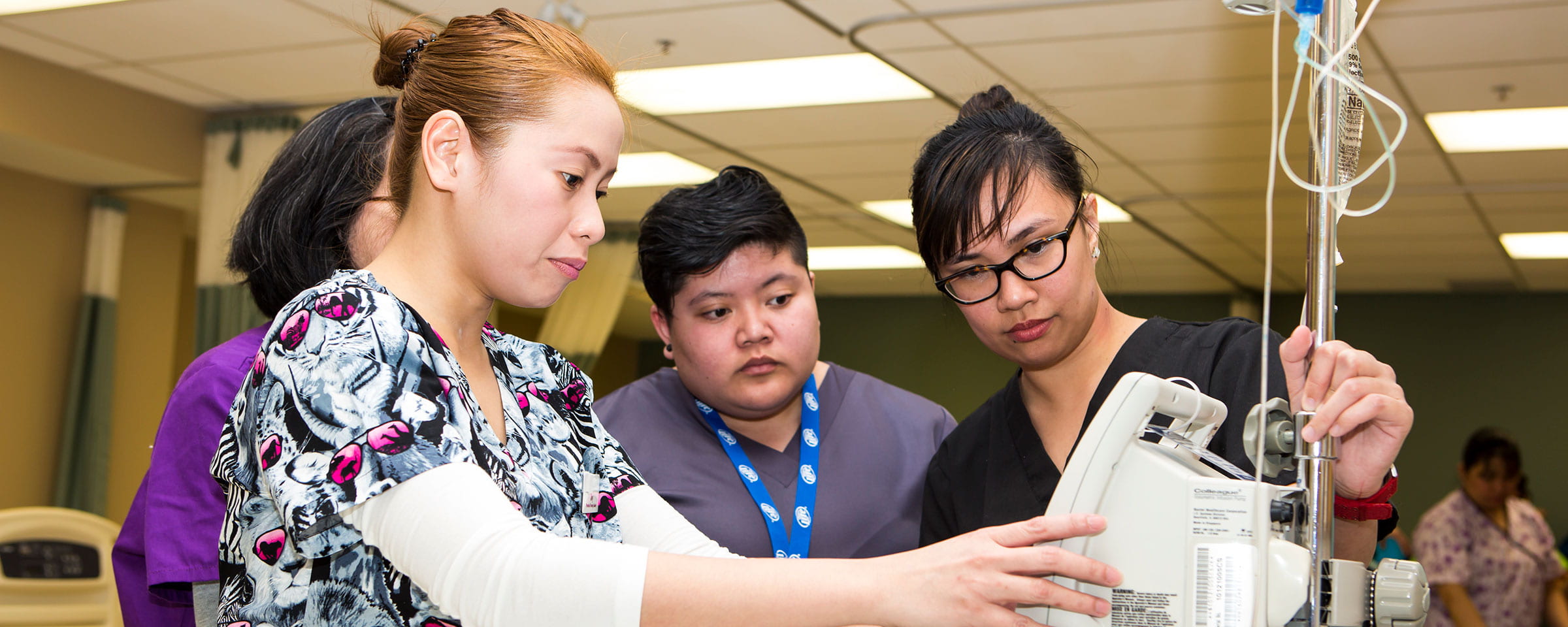


The Communication for Internationally-Educated Nurses (IENs) program is free to eligible students (permanent residents and CUAET visa holders), thanks to funding from Immigration, Refugees and Citizenship Canada. Canadian Citizens may also qualify for this course if they are part of the Manitoba IENs Program.
The focus of the program is on building core language skills in the four areas of listening, speaking, reading, and writing, as they relate to the Canadian healthcare system. In addition, this program also introduces skills and strategies for CELBAN.
The program consists of real-time, instructor-led online classes where you communicate directly with your classmates, in addition to completing independent tasks and assignments in a fully online environment.
When you finish the program, you will be more prepared for the CELBAN and for communicating with patients and colleagues in the Canadian healthcare system.
15-week program
4-8 hours per week
Small class sizes
A computer with a webcam, internet access, printer, plus a good-quality headset and microphone.
A minimum English level of CLB 6/7.
All applicants must have a referral from WELARC or the IENs in Manitoba Program.
COMM-1199 Communication for Internationally Educated Nurses
Aug. 25 – Dec. 5, 2025
Choose from our Skills and Strategies for CELBAN courses in Fall 2025:
COMM-1188 – Speaking
Fall exact dates to be determined
COMM-1186 SSC – Listening
Aug. 25 – Sept. 26, 2025
COMM-1187 SSC – Reading
Aug. 25 – Oct. 10, 2025
COMM-1189 – Writing
Fall exact dates to be determined
Fall exact session times and dates to be announced.
Participate in one, two, or all three of the workshops to improve your skills for the CELBAN:
Note: Programs and classes only run if a minimum number of students register.
RRC Polytech campuses are located on the lands of the Anishinaabeg, Ininiwak, Anishininwak, Dakota Oyate, and Denésuline, and the National Homeland of the Red River Métis.
We recognize and honour Treaty 3 Territory Shoal Lake 40 First Nation, the source of Winnipeg’s clean drinking water. In addition, we acknowledge Treaty Territories which provide us with access to electricity we use in both our personal and professional lives.